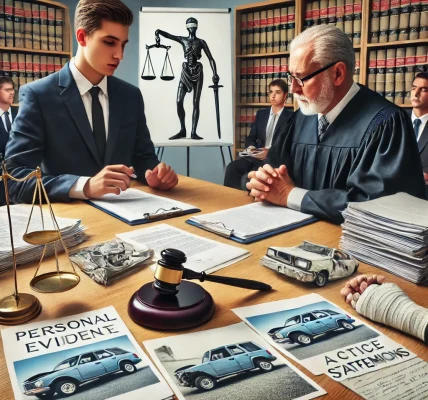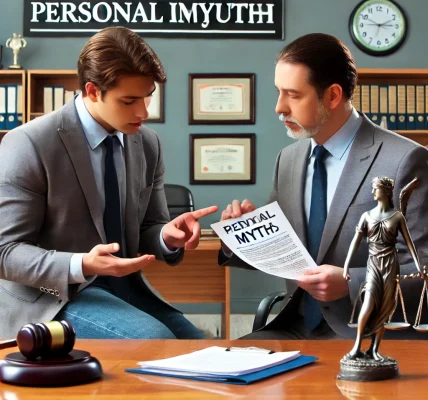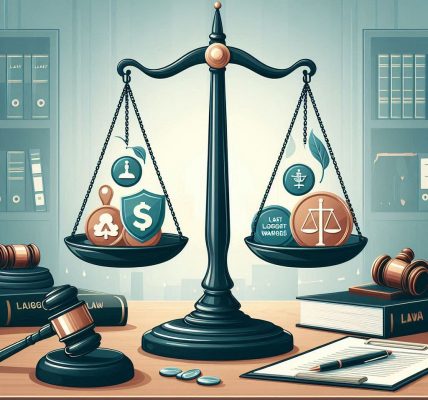When a minor suffers an injury due to someone else’s negligence, the legal process for seeking compensation differs significantly from that of an adult. Personal injury law provides special considerations and protections for minors to ensure they receive the justice and compensation they deserve. Understanding these differences is crucial for parents and guardians who may need to file claims on behalf of injured minors.
In this article, we’ll explore how personal injury law applies to minors, key differences from adult cases, the statute of limitations for minors, settlement considerations, and how to navigate legal proceedings for an injured child.
Legal Differences in Personal Injury Cases for Minors
1. Minors Cannot File a Lawsuit Themselves
In most jurisdictions, minors (children under 18) do not have the legal capacity to file lawsuits. Instead, a parent or legal guardian must act as the minor’s representative in court. In some cases, the court may appoint a guardian ad litem, a neutral party who ensures the child’s best interests are protected throughout the legal process.
2. Extended Statute of Limitations
Statutes of limitations determine how long a person has to file a lawsuit after an injury occurs. However, for minors, this period is often extended.
- In many states, the statute of limitations does not begin until the child turns 18.
- Some states allow a grace period after the child turns 18, typically one to three years.
- Exceptions may exist for medical malpractice and government-related claims, which may still have shorter deadlines.
3. Higher Standard of Duty of Care for Children
Courts often recognize that children do not have the same level of awareness or responsibility as adults. As a result:
- Defendants may be held to a higher duty of care when children are involved.
- In premises liability cases (e.g., injuries at a park or swimming pool), property owners may be held liable under the attractive nuisance doctrine, which requires them to take extra precautions to protect children from hazardous conditions.
4. Parental or Guardian Consent for Settlements
If a settlement offer is made in a minor’s personal injury case, courts often require:
- Parental or guardian approval before the settlement is finalized.
- Court approval if the settlement amount is significant.
- Structured settlements, where compensation is placed in a trust or annuity that the minor can access when they reach adulthood.
Common Types of Personal Injury Cases Involving Minors
Personal injury claims involving minors can arise from various situations, including:
- Car Accidents: Children injured as passengers, pedestrians, or bicyclists.
- Medical Malpractice: Birth injuries, misdiagnoses, or surgical errors.
- School and Daycare Injuries: Negligence by caregivers or unsafe conditions.
- Playground and Amusement Park Accidents: Poor maintenance or lack of supervision.
- Defective Products: Toys or other items that cause harm due to design flaws.
- Dog Bites and Animal Attacks: Special liability laws often apply to cases involving minors.
Challenges in Personal Injury Cases for Minors
1. Proving Future Damages
Injuries sustained during childhood can have long-term consequences. Lawyers must carefully calculate damages, including:
- Future medical expenses
- Long-term disability or rehabilitation costs
- Pain and suffering that extends into adulthood
- Educational or career impact
2. Determining Liability When Children Are Partially at Fault
Comparative negligence laws determine how damages are awarded when multiple parties share responsibility for an accident. However, courts often apply different standards for minors:
- Young children are usually not held liable for their own injuries.
- Older minors may be held partially responsible, depending on their age and maturity.
- The standard for evaluating a child’s negligence is based on what is reasonable for their age, rather than the standard used for adults.
3. Ensuring Fair Compensation
Since minors cannot make financial decisions, courts often require:
- Structured settlements to protect the child’s financial future.
- Court-appointed trustees to manage large settlements.
- Restricted accounts where funds are placed until the child reaches legal adulthood.
Steps to Take If Your Child Is Injured Due to Negligence
If your child has suffered an injury due to someone else’s negligence, follow these steps to protect their legal rights:
1. Seek Immediate Medical Attention
Prompt medical treatment not only ensures your child’s health but also provides necessary documentation for your case.
2. Document the Incident
Gather evidence, including:
- Photos and videos of the accident scene
- Witness statements
- Medical records and bills
- Police or incident reports
3. Consult a Personal Injury Lawyer
An experienced attorney can guide you through the legal process and ensure your child’s best interests are protected.
4. File a Claim Within the Legal Deadline
Even though statutes of limitations are often extended for minors, it’s best to take legal action as soon as possible to preserve evidence and witness testimony.
5. Negotiate a Fair Settlement
Your attorney will work to secure a settlement that covers all present and future damages. If the insurance company does not offer fair compensation, a lawsuit may be necessary.
Conclusion
Personal injury law for minors has key differences designed to protect young victims and ensure they receive fair compensation. From extended statutes of limitations to structured settlements, the legal system acknowledges the unique needs of injured children. If your child has been injured due to negligence, consulting a personal injury attorney can help you navigate the legal complexities and secure the best possible outcome for their future.
If you need legal advice regarding a minor’s personal injury case, contact an experienced lawyer as soon as possible to ensure your child’s rights are fully protected.




